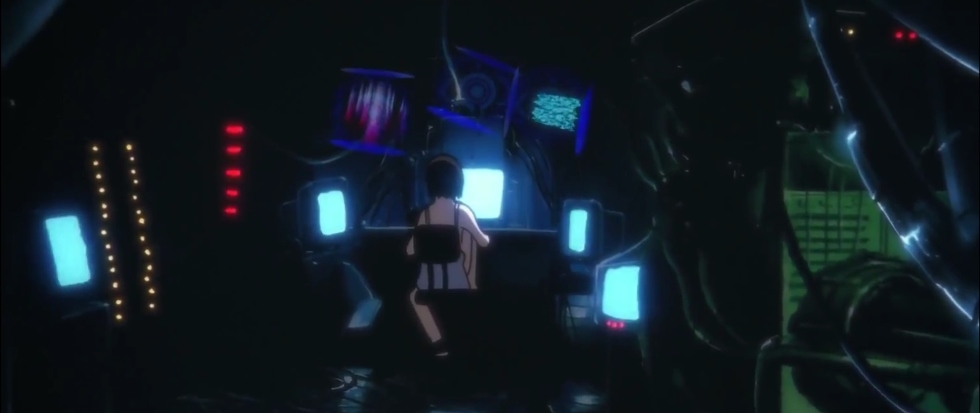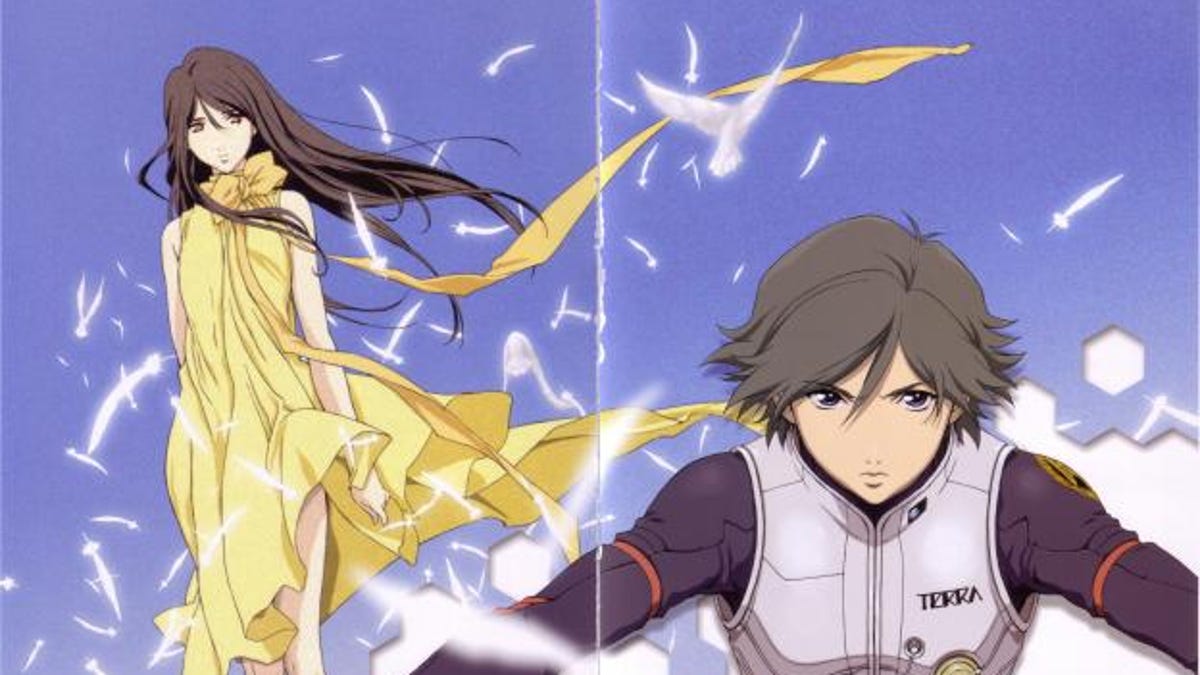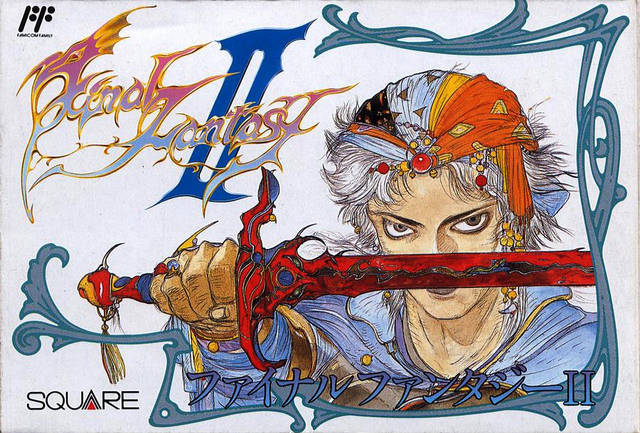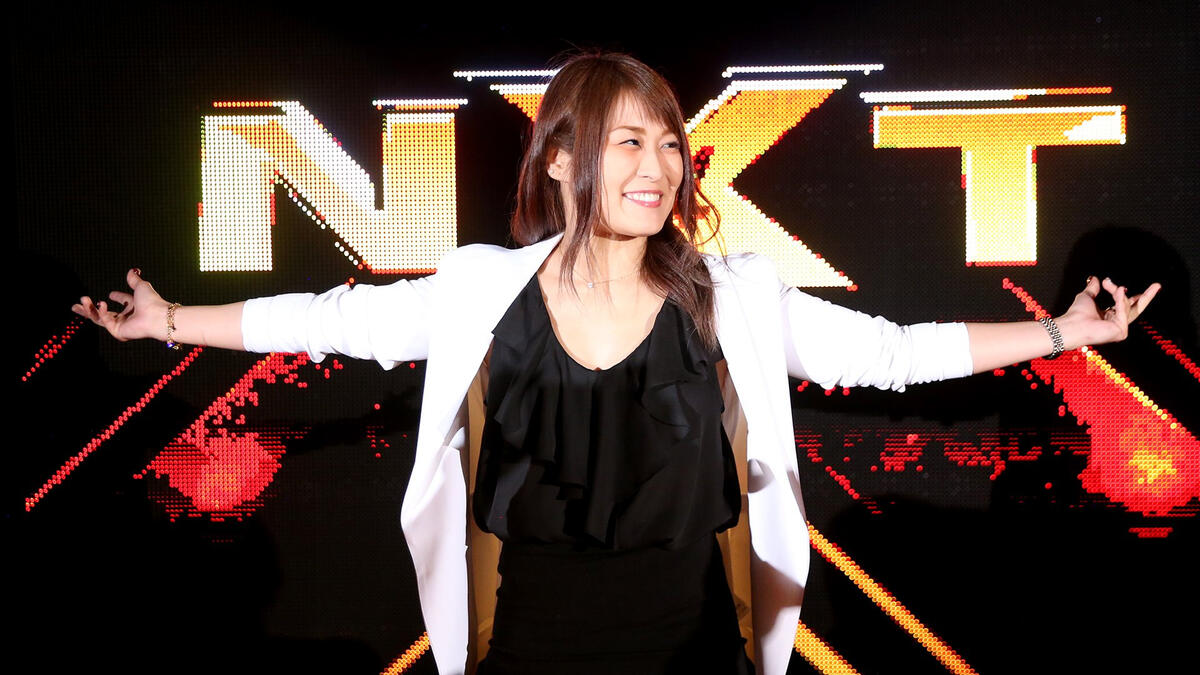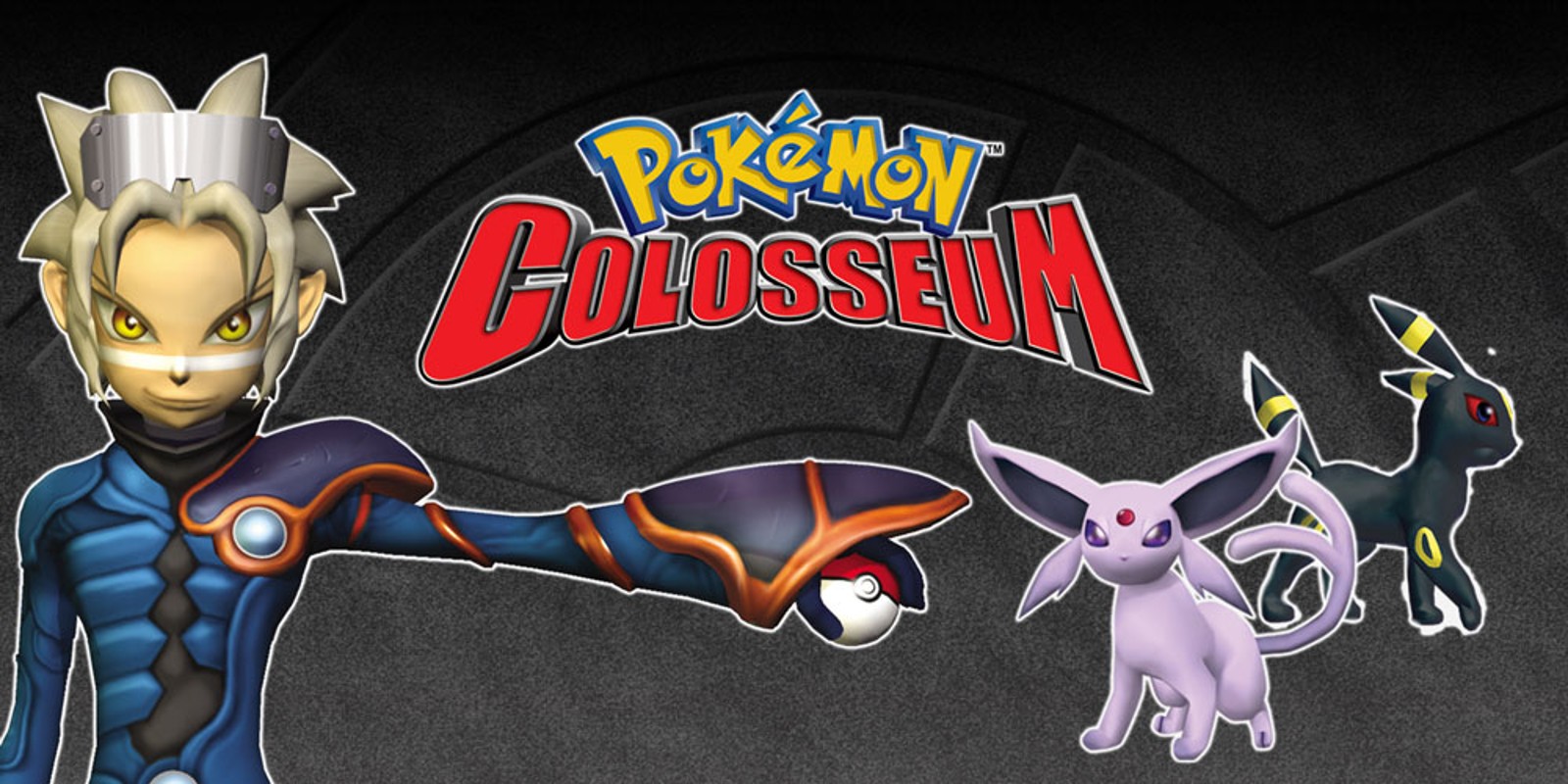Levi is a wholly unique character in Attack on Titan. The conceit of his character is almost adversarial to the conceit of the show, titans are a non-issue to Levi. There has never been a single moment in Attack on Titan where Levi has been in serious danger of dying by the hand of a titan. Whenever any other character, no matter who they were, was around a titan, especially early on, there was recognition from the audience that they were in serious danger, but not with Levi. Even when you thought he was, with the Female Titan, with the Beast Titan, instantaneously he had them under control and grovelling at his feet. This is the conceit of Levi’s character and what makes him so unique, titans pose no danger to him, when they are deadly to everyone else. Now a problem arises when creating a character like this. Every character has to have an obstacle to overcome, because with out an obstacle there is no conflict, and without conflict in a character there is no story. So, if Levi’s obstacle isn’t the titans, then what challenges him in the narrative. What makes him interesting and the best written character in Attack on Titan? Levi is used to explore the theme of loss.
Just because Levi is impervious to damage by titan, doesn’t mean everyone around him is, and nearly everyone around Levi dies, and he has to deal with it. All his contemporaries are dead, except for Hange, and that’s why they are so inseparable and why they have been perpetually paired up throughout the series and find themselves together as the series exits. But that’s it, Levi has to watch as everyone dies and deal with it and find some essence of purpose. Think about it, Levi Squad dies, Petra who may or may not have been engaged to Levi died, Mike died, all the scouts preceding the 104th Cadet Core died ion Shiganshina, if not before, his mother died, Kenny died, Erwin died. Even more than this, recently he was forced to mow through dozens of his own men who were manipulated by Zeke’s spinal fluid plan and were turned into titans. Things have never been easy for Levi.
Now, this video is certainly a hot-take, the conversation of best written character in Attack on Titan usually leans toward Eren or Reiner, who are effectively our main characters, and some people like to get spicy and through maybe a Zeke or an Erwin in there, but here my stance is clear. It’s Levi. I say Annie is my favourite character in Attack on Titan, but that’s partially the twelve-year-old left in me, seeping through, but I think I’m ready to support the videos titular statement. But this video isn’t to piss off or overcorrect for the Reiner, Eren, Erwin, Zeke people; all those characters are phenomenally written, even if I think Zeke is a little boring, this video is to overcorrect this narrative I see in more analytical and cynical sides of the Attack on Titan base that repeat the talking point that Levi is nothing but fan service and that people only like him, and that he’s only such a well-regarded character because he’s badass.
Now there’s no denying that just by the existence of probability that there is a subsect of the Attack on Titan audience that only like the series for the action, and Levi, obviously to these people, would be one of there favourite characters since he has all the best fight scenes. I don’t fault them for this, it’s great action, but just because people like this exist doesn’t mean that to overcorrect this opinion you have to overlook how good Levi’s character is, even removed from all the action. In fact, I’d say it’s the mixture of the action scenes and the quieter storytelling scenes that make him the best written character.
To explore and bolster this point, I’m going to use my favourite examples from each category to demonstrate what’s so great about Levi’s character writing. Let’s look at both his fights with the Beast Titan, from an action perspective and let’s talk about everything to do with Kenny from a storytelling perspective. Let’s start with the action perspective.
I haven’t been shy about a concept I want to make into a video called, ‘I Wish Gabi’s Shot Had Landed.’ A video that wouldn’t necessarily be about Attack on Titan or Gabi shooting Eren but be more about the nature of abrasive twists in narratives. The video could just as likely be called, ‘I Wish Thorgil had Killed Canute,’ or ‘I Wish Braun Had Killed Drogon,’ or ‘I Wish Jamie had Killed Dany,’ or ‘I Wish Ishii had Won the Championship.’ It’s statement about having something truly unfathomable happen in the narrative, for the sake of a monumental twist, something that the audience acknowledges is impossible. Gabi obviously can’t kill Eren in Chapter 119 because for the sake of the plot he has to survive to activate the rumbling, and factor into the overall ending. We all knew this, but in those first few seconds I saw that beautiful double-spread, I believed that Isayama had done the impossible. Same with Canute in the Farmland arc, of course Thorgil narratively couldn’t have killed Canute, because he and Thorfinn haven’t reunited again yet, and they need to have a conversation to progress the grander plot. But for a few seconds there, when I first saw that page of Thorgil charging out of the ocean, I believed Yukimura had done the impossible. Game of Thrones made me believe twice in 10 minutes in Season 7 Episode 4, with Braun hitting Drogon and Jamie nearly killing Dany, but of course, it disappointed on both accounts. Imagine how awesome it would have been for Braun or Jamie to have taken Dany and Drogon out of the narrative right there, think of how interesting that makes everything, but the narrative demanded otherwise. In all the examples I just laid out the author disappointed me, the author in all those scenarios opts to have a consistent, responsible plot, and refuses to undermine everything for any of these singular moments but imagine if they had. Imagine how special it would be. Isayama gave us that moment, twice, with the same characters in the same scenario, and the impossible happened with Levi and the Beast Titan right in front of our eyes, before we could even comprehend what was going on, and finally having an author have the balls to go through with it, twice mind you, is a fantastic feeling.
Most people definitely thought the Beast Titan was going to be the final boss of the Shiganshina arc, and therefore Levi taking the Beast Titan out without the him fighting Eren seemed impossible. Eren will be the one to beat him, right? There’s no way Isayama built this threatening, mysterious, weird, threat up for him to be defeated this early and this easy by Levi. This will finally be the moment Levi fails, and the younger generation, symbolically takes over. Hange and Erwin are both already presumed dead by this point in the arc, it seemed to be the theme Isayama was going for, as literally everyone from the older generations of the scouts were dead. Every narrative convention is leading the audience to believe that Levi can’t do it, not this time. Just like Jamie and Braun couldn’t do it, just like Gabi and Thorgil couldn’t do it, and then within seconds Levi just fucking destroys this idiot. As it’s happening you get that hope I talked about with all those other examples, just because of those examples you start to get worried that the rug is about to be pulled out from underneath you, but it doesn’t. Isayama fires the shot and just does it and it’s the best narrative feeling imaginable.
This validates everything the audience believes about Levi, and invalidates everything the audience believes about Zeke, in an instant. Levi is a monster, he can’t lose, not to titans. This fact is forever validated in this moment, and Zeke’s mystic is dead. He’s not this all threating, terrifying final boss figure, because in the full context of the story that’s not his role. Zeke isn’t the final bad guy of the series like the story seemed to be teasing, he’s just a cog in a far larger machine, that the audience will learn about in a few chapters. The balls it takes to quadruple down on this conceit and build a villain perfectly just to sacrifice its intimidation and fighting ability, not to a new character either, but to one that’s been here, doing this from the beginning, is awe-inspiring. Levi never loses, it’s brilliant. It’s a sure-fire way to make him one of the most popular characters in your series, because he’s never proven wrong, he always wins. And this moment is only made retroactively better when Isayama somehow pulls the same thing twice, with the exact same characters, in nearly the exact same scenario, in Chapter 112.
The odds are stacked against Levi even more in the second battle. Not only was internal conflict a factor this time as Levi was at the height of his frustration here, because not only did he already hate Zeke for killing everyone he ever knew in Shiganshina, but now he’s transformed his entire new squad of dozens of scouts into mindless titans, and forced him to either kill them all or let himself be killed by them and allow Zeke to escape. And it may seem obvious in retrospect that Levi wouldn’t give up, there was speculation after the end of Chapter 112 that Levi couldn’t do it, maybe he would give up, and even if he didn’t he’s massively outnumbered, these titan’s are under Zeke control meaning they are more threatening than normal titans, and they swarm him at close range instantly. Again, narratively Zeke has to get away right? Is Levi’s purpose in the narrative over, maybe it’s his time to die? And then just like last time in seconds he’s killed all the mindless titans and has Zeke on his knee, without a face. Because Levi never loses.
We don’t even get to see Levi kill all the mindless titans because we understand what happened. It happened again. We doubted him, somehow Isayama again mislead us into thinking that he couldn’t beat Zeke and then he did it with ease. Again, Levi never loses and again you get that feeling that you almost got with all those other examples, but Isayama had the balls to pull it off. He never wavers in his devotion to the conceit of Levi’s character. Not only does this show great narrative consistency, but it also is knowingly creating a character that will be loved as an action hero, who never loses. This is great writing and it shines through in how Levi is eventually taken out, by a suicidal Zeke in the following chapter. Levi didn’t make any mistakes, he just assumed that Zeke wouldn’t try suicide, and ended up being blown apart, after being caught off guard. Not only is this conceit an interesting concept but it’s led to some of the best moments in the series as I’ve outlined here from the action perspective. So, don’t let people undercut all this and say that people only like Levi because he’s badass and allow them to miss all this nuance. But now let’s move on to talking about the storytelling perspective and everything to do with Kenny.
Levi’s best moments in terms of action happen in the Shiganshina arc, and the still unnamed current arc, but the Uprising arc, is really his arc. The story is about two plotlines Historia becoming Queen, and Levi vs Kenny. The Historia stuff is great, but the Kenny/Levi stuff is my favourite. Levi’s backstory isn’t particular tragic, but it is melancholic, and that’s sort of the word I’d use to perfectly describe their relationship. The son of a prostitute is left to starve until this man, he didn’t know started to take care of him without an explanation. He taught him how to survive in the underground walled society and then left. Levi was left on his own until he joined the scouts and started taking orders from Erwin, which gave him purpose and a direction in life. It’s not tragic, you aren’t going to cry, but it does make you feel something. We don’t learn all this until quite a while into the arc, but the way both of their rather enigmatic personalities juxtapose the melancholy of their backstory is a great touch.
Kenny is a big personality, just like Levi. He gets quite the introduction into the series, with a reputation that proceeds him and an awesome battle with Levi, that involves him role-playing as a cowboy. Even though they are very different them being close, and as we find out throughout the arc, them being family sort of just fits. But everything here is retroactively taken to the next level by the final scene they share together, when after the main plot of the arc is wrapped, Levi searches for Kenny in the wreckage and finds him dying. This conversation between the two of them is outstanding and one of my favourite moments in the series, and again it highlights the melancholy that surrounds these two. Now, I talked about with the action portion of this video, how Levi never loses in combat or against titans, but his conflict and source of both motivation and sadness is loss, and the moment Kenny dies, is possibly the most emotional we ever see Levi.
This final scene between the two of them is one of my favourite scenes in the entire series. Again, the melancholy here, makes the scene. Everything is so matter of fact, everything just is the way it is, and I feel like Kenny is accepting that as he dies here. Levi makes it known to the audience early on in the scene that Kenny is in rough shape and will die, Kenny already knows this, and this scene serves as a tell-all for Levi and the audience and we see who Kenny truly is. But there’s also a great twist hidden in the ending of the scene, where the audience realises that Levi thought Kenny was his biological father, and that’s heart-breaking. That’s Levi’s motivation for tracking him down after everything that’s happened, and that’s why we see Levi as distraught as we will ever see him in this scene.
It all makes sense if you think about it from his perspective and recontextualise everything we know from their backstory. Levi learned through the arc that his last name was also Ackerman, just like Kenny’s, this man shows up as his mother dies, to see her one more time, he’s familiar with her, more than one of her customers, he looks after him and feeds him, teaches him how to survive. It’s easy to assume this was because of some parental obligation a would-be father would have. Kenny was the only father figure Levi had ever had. Put this all together and it makes perfect sense for Levi to assume that Kenny was his father. And the moment where Kenny realised that’s what Levi had assumed, he laughs coughing up blood, and it’s a very wholesome moment between the prostitute’s son and his loving serial-killer uncle. It’s a great reveal that Levi just had daddy issues the entire time. Which leads directly into the final line Levi has for Kenny when he, with a tear in his eye, asks Kenny why he left him, and Kenny says because he couldn’t be son kids’ dad, and you feel the melancholy, but in a good way. Then he dies.
Kenny was Levi’s dad, and he ran away because he started to get attached and didn’t like it. Levi felt betrayed and alone which lead him to become who he is today. They loved each other and then they separated because they scared each other off, and now Kenny’s dead and just before he died Levi got his closure and it’s a great moment from a storytelling perceptive. This is the most vulnerable we ever see either one of these strong, guarded men, and the fact that it led right into Historia punching Levi, that’s a far better moment in the manga, put this over the edge. It’s cute, and Levi doesn’t get to be cute very often, and the smile after Historia punches him validates everything.
These dualistic sides of Levi shine in his best moments from each category and demonstrates, at least why I think he’s the best written character in Attack on Titan. It’s frustrating to see people misunderstand his character so dismissively and stupidly. So, fuck those people. As for the future, I’m completely at a loss for where he goes from here, the series is nearly done, and the most recent chapter confirmed that he’s not dead, and that’s about all we know. Will he have the Jamie Lannister character arc we’ve been speculating about, or will he somehow continue his fight? Remember if he fights, he can’t lose. But ultimately, all this is why Levi is the best written character in Attack on Titan.
That’s the video, now let me shill. I’m trying to grow my Twitter presence. My tweets tend to be unpopular, especially on Attack on Titan twitter, so heading over there would help me out. On Twitch I only need a few more followers to become an affiliate, which would help me out a lot. We’ve been doing a lot of Pokémon Nuzlocke’s recently. If that interests you, the link is in the description. We talk about all things media analysis as we are mindlessly grinding away over there. And finally, I have a Patreon if you want to support my work. You can get access to a bonus video a month and so much more. Again, link in the description. Support Links in the Description Below, Thanks.




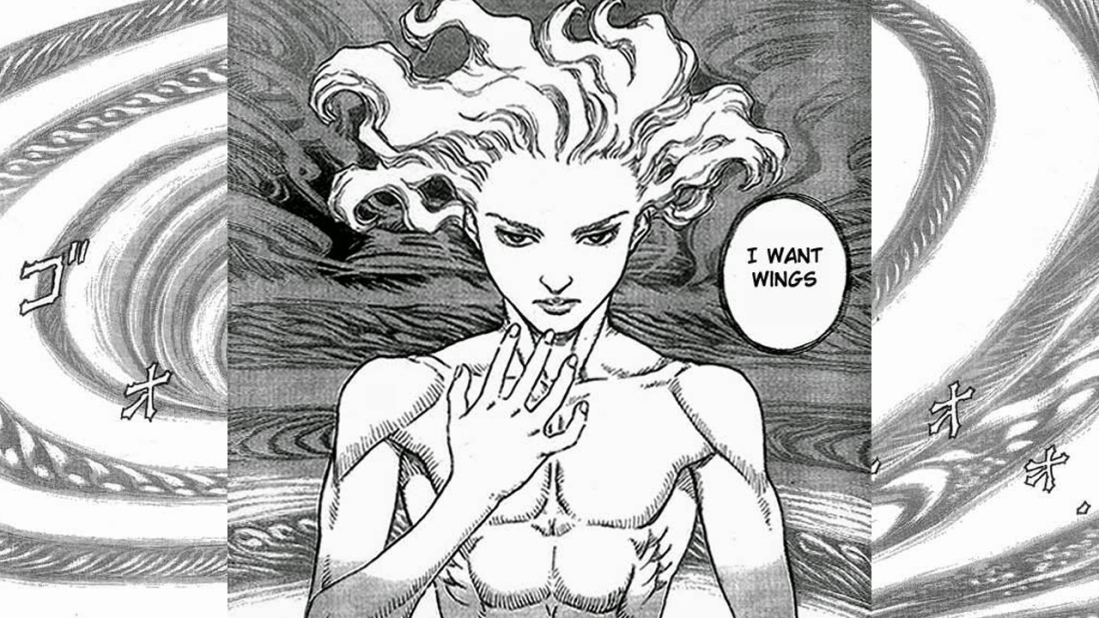


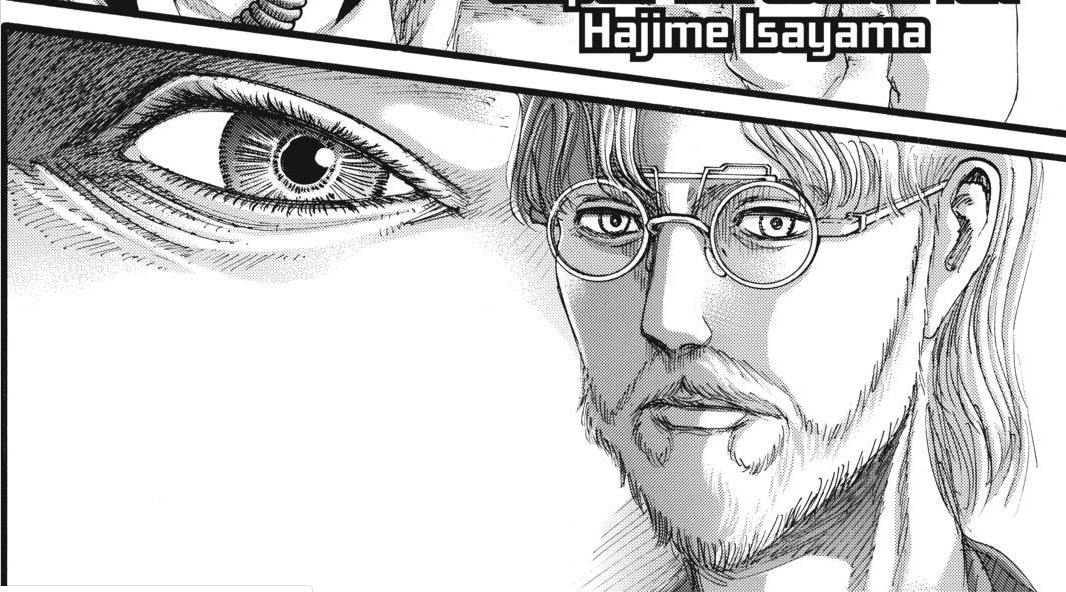

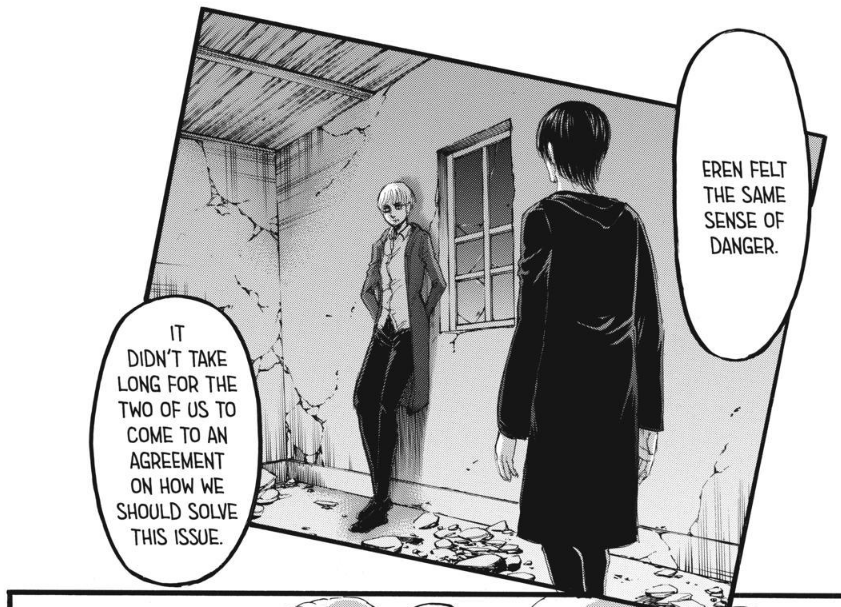
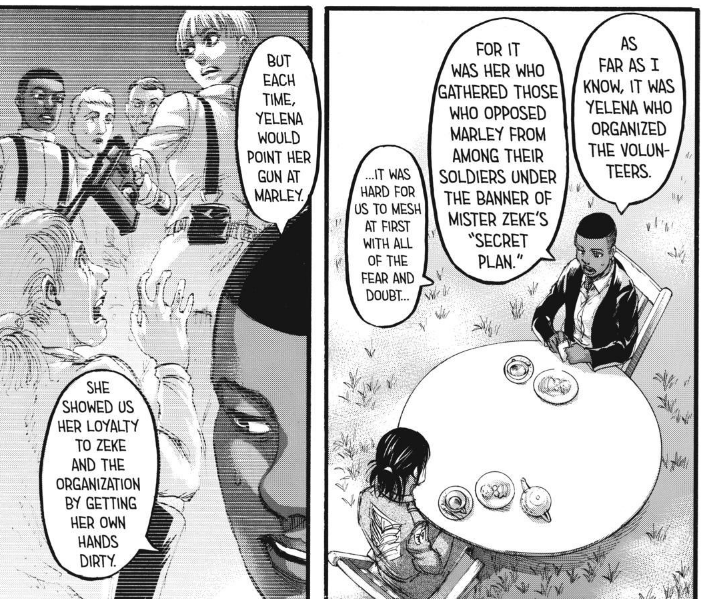
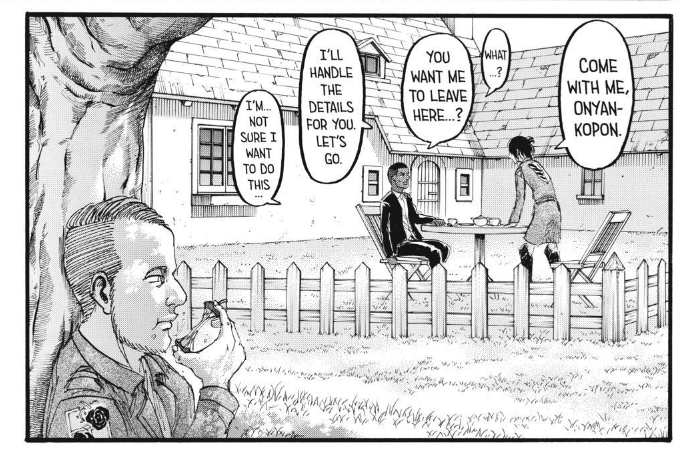
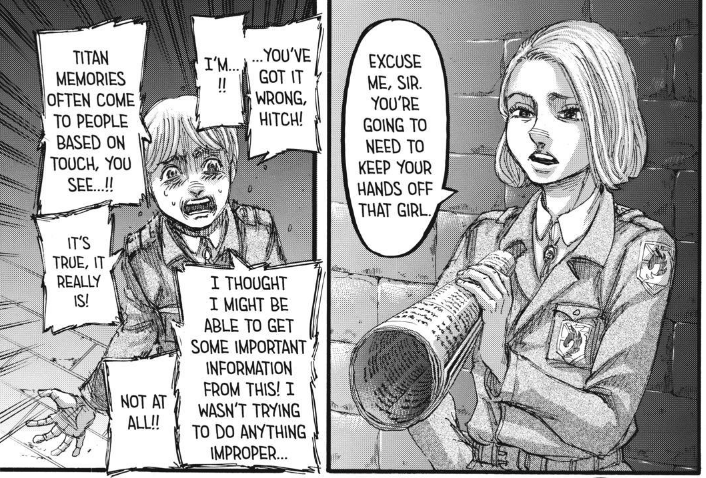


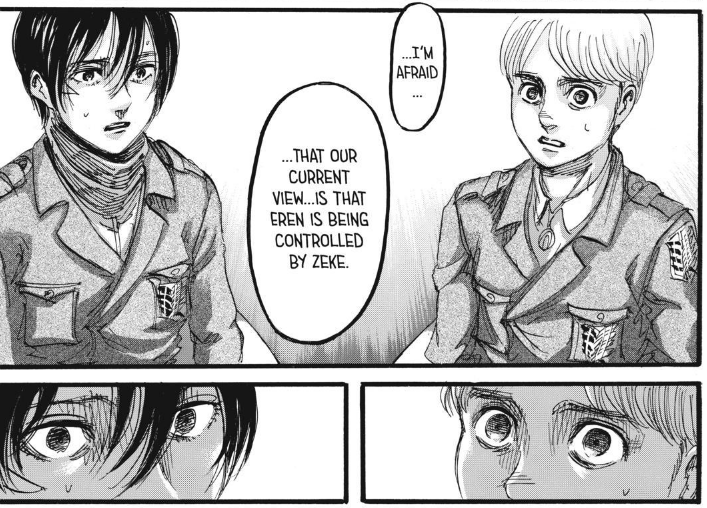
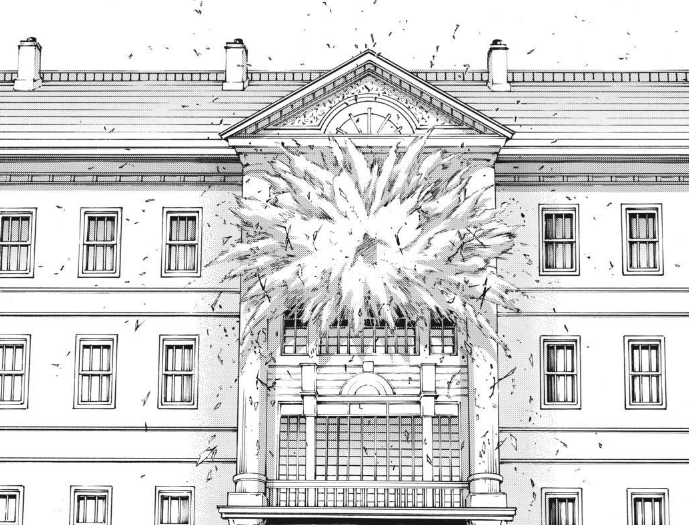

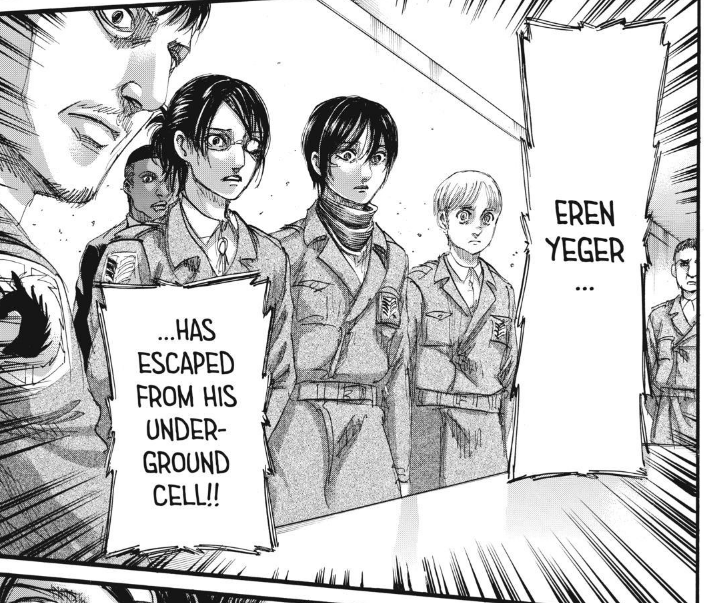





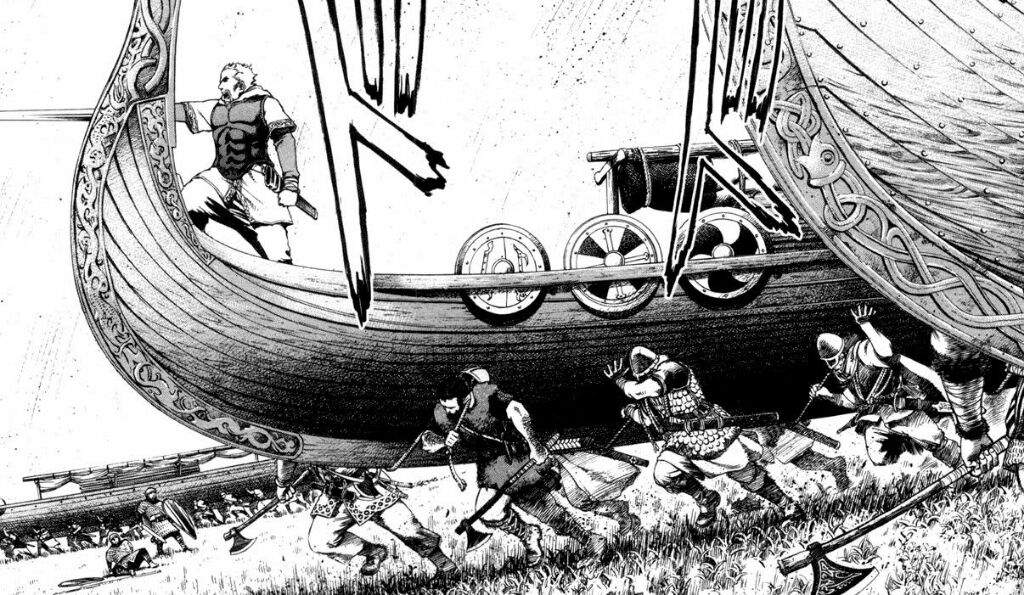

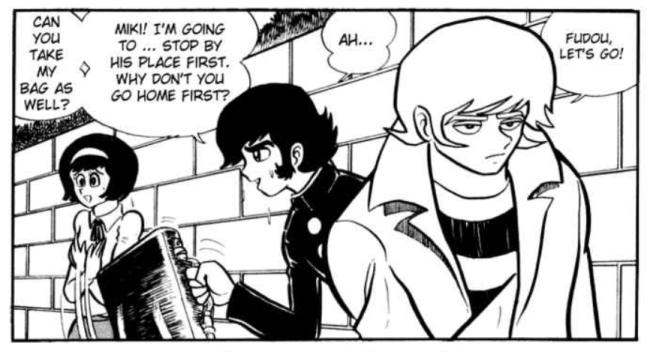
/https%3A%2F%2Fblueprint-api-production.s3.amazonaws.com%2Fuploads%2Fcard%2Fimage%2F499727%2Ff2e1be2b-3a38-4308-80ce-6a13716a8c66.jpg)
